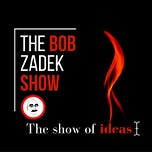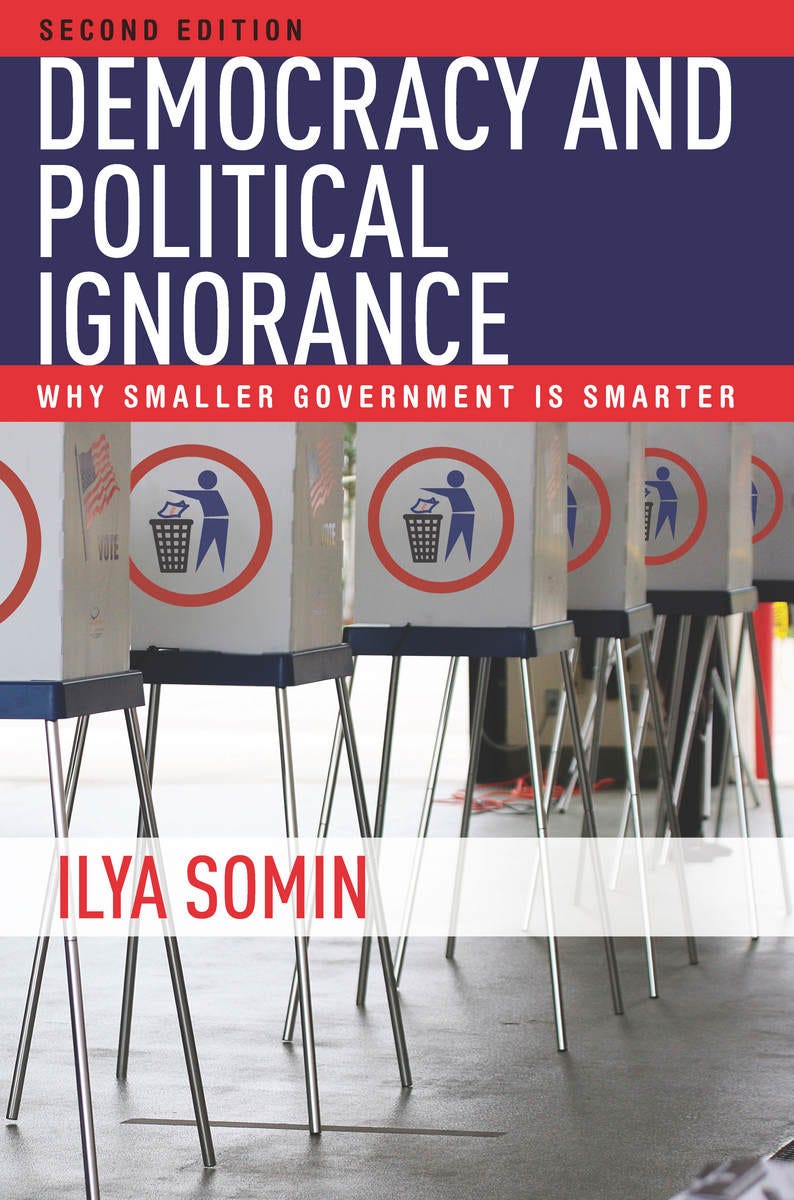The National Constitution Center is one of the most important nonprofit organizations in the country. Its Executive Director, Jeffrey Rosen is fond of saying that it is the only nonprofit organization funded by Congress (don't get suspicious) for the sole and exclusive purpose of increasing awareness and understanding of our founding document, the Constitution.
The NCC recently undertook a project to understand what’s not working in our democracy, and what guardrails ought to be put in place to make it work better. They solicited suggestions from three teams: one libertarian, one conservative, and one progressive.
I was first joined by Ilya Somin, a law professor at George Mason University, to offer the libertarian perspective. Somin focuses on constitutional and property law, as well as representative governance. He has written numerous books, including Free to Move: Foot Voting, Migration, and Political Freedom (Oxford University Press, 2020), and Democracy and Political Ignorance: Why Smaller Government is Smarter – both of which informed his team’s report (download it here).
Below is a summary of the three main ideas offered by Team Libertarian to ensure that our system of government remains accountable to We the People. While libertarians as a group are not often the most favorable towards capital-D Democracy, insofar as it leads the majority to deprive individuals of their rights, the team (composed of Ilya Somin, Clark Neily and Walter Olson) came up with several suggestions worth heeding.
Proposal #1 - Electoral College Reform
The 2020 election exposed vulnerabilities in the transition of power after the President and his supporters failed to concede defeat, and nearly sought unconstitutional remedies to overturn the results.
Team Libertarian places the blame on the Electoral Count Act of 1887, which makes it ambiguous by which point states must certify their votes. The attempts by Trump partisans to send a different slate of electors may have been illegal even by the standards of the 1887 act, but it was vague. The proposed reform, heading to a vote in Congress, would still allow states to set their own elector policies, but would force them to have the system set in advance of election day.
“Finally,” Ilya notes, “there is what until 2021 was just a formality – the issue of Congress and the Vice President's powers to refuse to recognize particular electoral votes.”
Although Mike Pence ultimately refused to be pressured to overturn the result, Team Libertarian argues that we should not grant anyone discretion over certifying results. “You should need a significant percentage of members of Congress who are willing to start a challenge before you can initiate [the process],” Ilya says.
We may see these changes passed through the Electoral Count Reform Act, although the Democrats likely squandered their opportunity to pass sensible reforms – instead opting to push radical legislation that focused on overcoming “voter suppression,” despite record turnout in the previous election. And so we wait to see whether Congress will find enough common ground to avert the next disaster of a partisan dispute over the results of a national election.
Proposal #2 - Break Down Barriers to Foot Voting
Perhaps the most explicitly libertarian idea within the report puts a slight twist on the term “democracy,” insofar as it refers to meaningful choice over one’s representation in government. Here, Ilya’s work on migration and free movement particularly influenced their suggestions to make “voting with your feet” easier. Foot voting is a proposed solution to the more general problem of rational voter ignorance (explored in Ilya’s earlier book, Democracy and Political Ignorance). While few voters can afford to take the necessary time to come to an informed decision on all of the complex issues facing our country, many people can and do carefully research which jurisdictions offer them the best governmental services at the best price.
The application of consumer choice and competition to politics often yields far better results than the ballot box, since politicians respond to the entry and exit of taxpayers from a given locale.
Yet there are many barriers to foot voting – namely, restrictive zoning and occupational licensing laws that make it harder for citizens to pack up and move.
“The biggest problem in your state of California is exclusionary zoning, where there are such tight restrictions on the building of new housing that it's often almost impossible to build cheap new housing in response to demand,” Ilya notes.
Even if one state or region wanted to make itself more competitive and appealing to residents of other parts of the country, they would have a hard time building enough homes to accommodate them all.
While most people don’t think of zoning or licensing as issues affecting the health of our representative government, Team Libertarian’s broader definition of small-d “democracy” illustrates why it actually matters a great deal.
Proposal #3 - Bring Back the Jury Trial
Although we didn’t have time to discuss it in great detail, the third plank of Team Libertarian’s proposal was the restoration of jury trials to their rightful place in the criminal justice system. I have covered this topic several times on my show, but it bears repeating that the founders envisioned juries being one of the fundamental ways in which the people assured fair representation and held overzealous prosecutors accountable. Today, most cases end in plea bargains, which rob the defendant of due process while denying citizens their duties of participation in our system of government. In this age of increasing polarization and mistrust, it’s more important than ever that people feel a sense of connection to the levers of power, as well as the responsibility to their fellow citizens to make sure that justice is served.
Ilya and I also discussed the concepts of political polarization as well as misinformation –both of which feed into a sense of separation and division of the body politic. Could jury trials composed of peers help us ease our anxiety about our political enemies and begin to heal the great divide? Perhaps that’s too optimistic, but we can start there and see where it leads.
Between easing foot voting, passing common-sense electoral reforms, and bringing jury trials, we can go a long way towards restoring the guardrails of democracy.















3 Libertarian Ideas to Strengthen Democracy